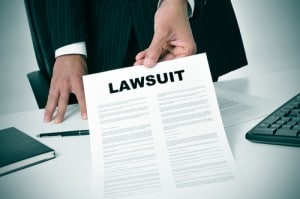Testosterone Therapy MDL Will Focus on Off-Label Marketing of Fake Disease
 The testosterone therapy MDL (multidistrict litigation) has 1,340 personal injury lawsuits alleging that therapies like Androgel, manufactured by AbbVie, were not only misrepresented in off-label direct-to-consumer marketing, but the drug manufacturers created a fake disease, and testosterone therapy was never approved for that use.
The testosterone therapy MDL (multidistrict litigation) has 1,340 personal injury lawsuits alleging that therapies like Androgel, manufactured by AbbVie, were not only misrepresented in off-label direct-to-consumer marketing, but the drug manufacturers created a fake disease, and testosterone therapy was never approved for that use.
The MDL will move forward beginning April 21st, when the court has a status conference to hear discovery efforts. The first bellwether is scheduled to go forward in the fall of 2016.
The individuals participating in the testosterone therapy MDL believe that they suffered serious adverse health events including strokes and heart attacks as a result of taking their prescribed testosterone therapy medication, which they admit they asked their doctors about due to direct marketing from pharmaceutical companies. Companies including AbbVie heavily marketed contentions that testosterone therapy gels or pills could help men who suffer from “low T” or low testosterone levels as they age, when in reality, lowered levels of testosterone are a natural part of the aging process.
“I’ve seen drugs with inadequate warnings or side effects that they should have disclosed and didn’t. But what I haven’t seen before is companies inventing a fake disease,” says one attorney for a victim. “[The client] talks about having borderline Low T but there’s no such thing as that. It was made up in marketing departments of drug companies. I’ve never seen this level of disease mongering.”
Testosterone therapy was approved by the FDA to treat select medical instances of low testosterone, involving hypogonadism, a disease caused by drastically low levels of testosterone caused by disease, injury, or genetic issues. However, instances of hypogonadism are rare – marketing research by AbbVie circa 2000 indicates about 1 million patients in the US have a qualifying condition – and testosterone therapy manufacturers began branching out to find new possible applications, regardless of the fact that the drug was only approved by the FDA for one use.
“There were a lot of commercials on at the time about looking younger, feeling younger, and yeah, that was a partial reason I went to see the doctor,” plaintiff Bob Cripe says. “When I thought I could just rub this gel on myself and have all this vitality, it seemed like a no-brainer. I was all in.”
Cripe spoke to his doctor and received a prescription for testosterone therapy. Then, just a week after beginning his “low T” treatment, Cripe suffered a spinal stroke. He was 46.
A second plaintiff, Daniel Lang, says that he doesn’t mind the direct-to-consumer advertising, but that he feels the pharmaceutical companies focused on profits over safety. “When I see these commercials now I definitely note the side effects. But I don’t recall being warned then.” Lang suffered pulmonary embolisms after beginning his own testosterone therapy treatments.
The FDA has reportedly implemented some changes to testosterone therapy, including updates to the labels noting that the proper reasons for using the drug. Plaintiffs are hopeful that the trial will help the FDA take more control over drug prescribing practices, and help reduce such dangerous off-label uses.
The Strom Law Firm Helps Men Injured By Testosterone Therapy
If you or a family member were injured or killed after using a dangerous drugs or medical products such as testosterone therapy or supplements, contact our testosterone therapy Personal injury lawyers as soon as possible so that we can begin taking steps to preserve evidence and your claim immediately. The attorneys at the Strom Law Firm offer free consultations to discuss the facts of your case. 803.252.4800

